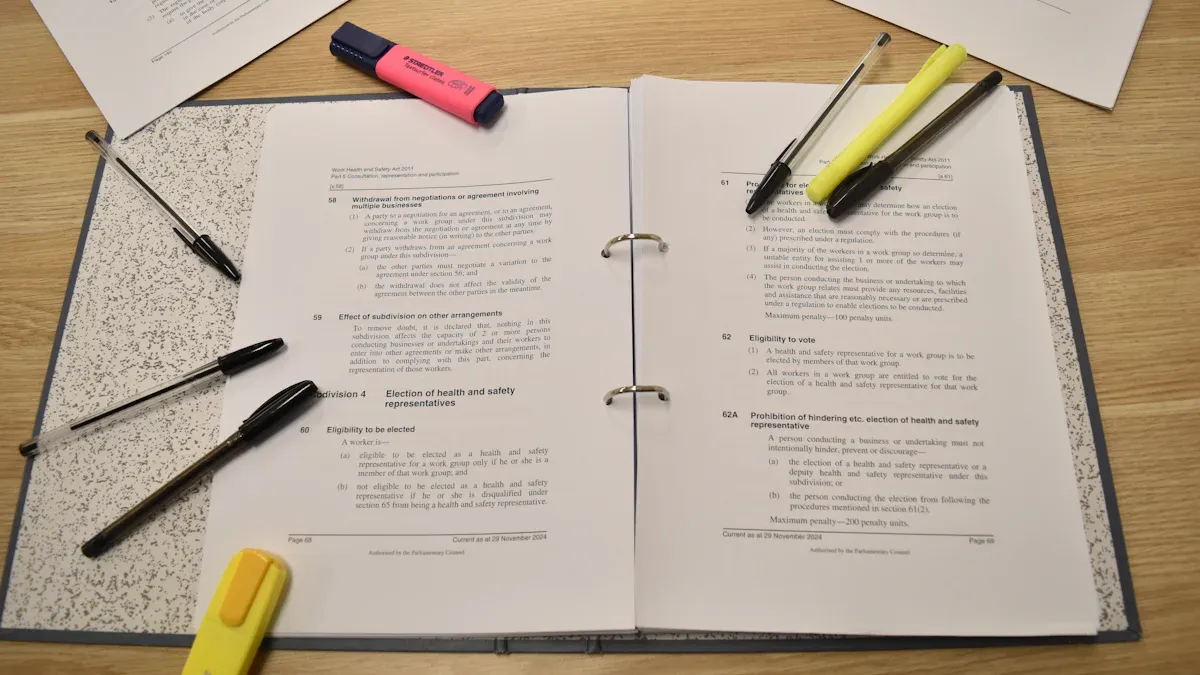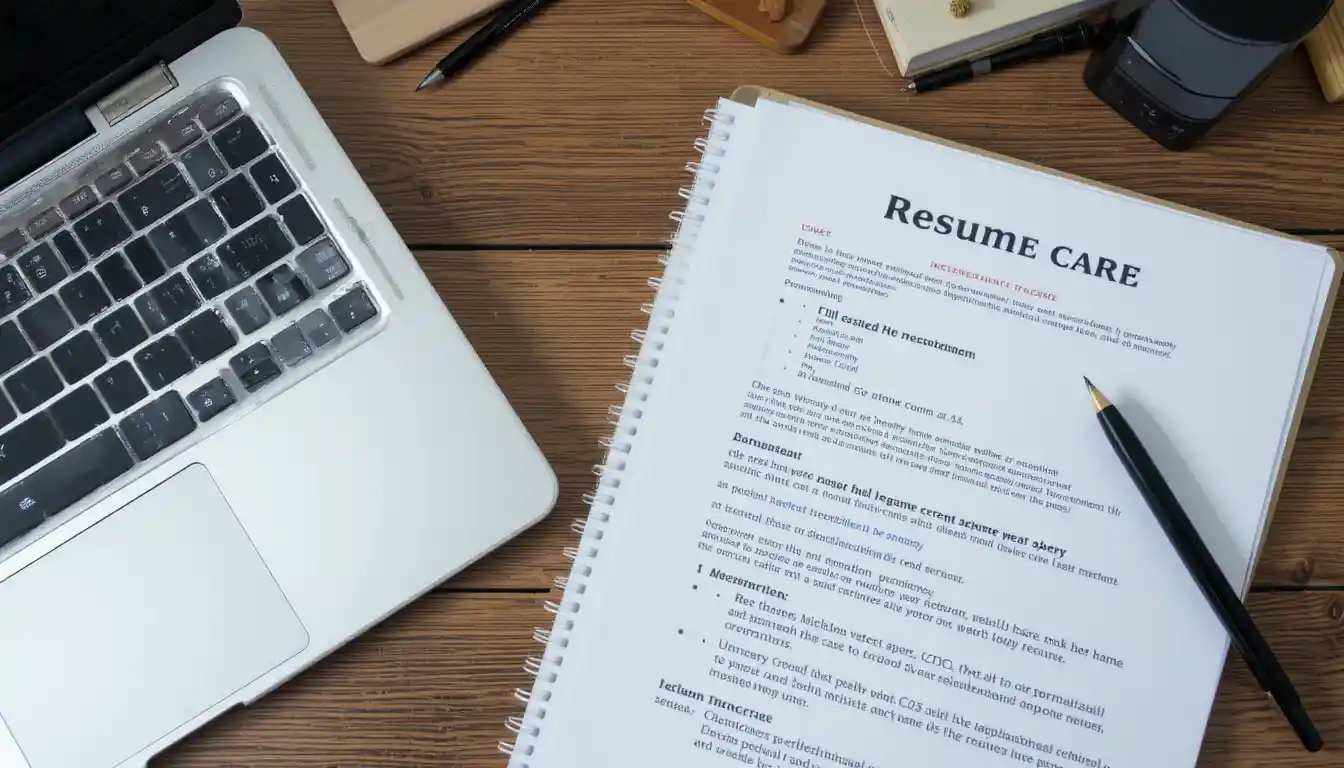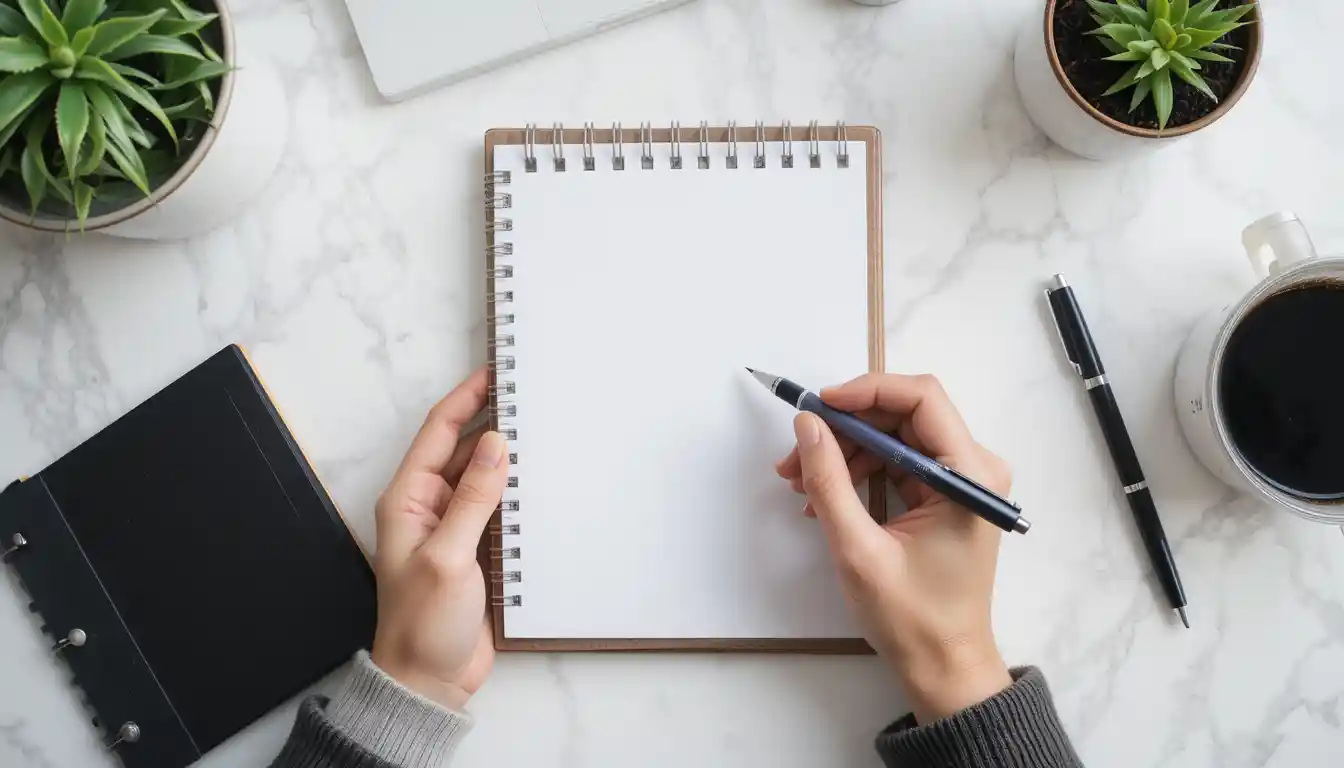How to prepare for exams without stress
You might ask how to prepare for exams without stress. The answer is yes, it is indeed possible to get ready for exams without stress. Many students feel nervous, with about 70% experiencing high stress and 76.5% feeling anxious before exams. Some main reasons for this include too much work, not enough sleep, and negative thoughts.
If you stay calm while studying, you can focus better and feel more confident. Studies show that students who know how to prepare for exams without stress tend to perform better on tests and feel happier overall.
| Findings | Implications |
|---|---|
| Stress raises cortisol levels and can hurt test scores. | Students who are stressed may have trouble thinking clearly during exams. |
Do you want to know how to prepare for exams without stress? You are in the right place.
Key Takeaways
- Make a study plan to manage your time well. This can lower stress and help you stay focused.
- Make goals you can reach for each study time. Split big jobs into small, easy steps to help you feel sure of yourself.
- Take care of your body by sleeping well and eating right. Good habits help you focus and remember things, so studying is easier.
How to prepare for exams without stress
Plan Your Study Schedule
If you want to know how to prepare for exams without stress, start by making a study schedule. Planning your study time helps you feel more organized and less overwhelmed. When you set aside specific times for each subject, you break your workload into smaller, easier tasks. This makes studying feel less scary and helps you stay on track.
A good study plan acts like a map. It shows you what to study each day, so you never have to panic about forgetting something important. You gain a sense of control, which can boost your confidence and lower your stress. Many students find that a clear schedule keeps them from cramming the night before a test.
Tip: Use a planner, calendar, or even a simple notebook to write down your study times. Color-code subjects or use stickers to make it fun!
Here are some reasons why a study plan works so well:
- It improves your time management.
- It breaks big tasks into smaller steps, making them easier to handle.
- It helps you remember more because you review material over time.
- It reduces anxiety by showing you exactly what to do each day.
Experts recommend these steps for a balanced study schedule:
- Decide which subjects or topics are most important.
- Find blocks of time in your day when you can study.
- Use a calendar or app to plan out your week.
- Tackle harder subjects when you feel most awake and focused.
You can also try new study methods that fit your learning style. Take regular breaks to help your brain rest and recharge. If you want to avoid last-minute cramming, start early and stick to your plan. A good study environment, like a quiet room with good lighting, can help you focus better.
Here’s a quick look at common mistakes and how to avoid them:
| Common Mistakes | Strategies to Avoid Mistakes |
|---|---|
| Studying in chronological order | Focus on the most important material first. |
| Just reading notes | Use active study strategies, like flashcards or teaching someone else. |
| Not practicing with tests | Take practice tests to check your understanding. |
| Using the same method for all exams | Match your study method to the exam type. |
| Only reviewing easy topics | Spend time on harder problems, too. |
| Memorizing without understanding | Try to really understand the ideas, not just memorize. |
| No clear priorities | Set goals for each study session. |
When you plan your study schedule, you set yourself up for success. You learn how to prepare for exams without stress and build habits that help you in school and beyond.
Set Realistic Goals
Setting realistic goals is another key part of how to prepare for exams without stress. When you set clear and achievable goals, you know exactly what you want to accomplish. This helps you stay focused and keeps you from feeling overwhelmed.
Think about what you need to learn for each subject. Break big topics into smaller pieces. For example, instead of saying, “I’ll study math tonight,” try, “I’ll finish five algebra problems and review one chapter.” This makes your goal specific and easy to measure.
Note: Use apps like Toggl or Forest to track your study time. Watching your progress can motivate you and give you a sense of achievement.
Here are some ways setting realistic goals helps you:
- You can track your progress and see how much you’ve learned.
- You feel less stressed because you know what to do next.
- You get a boost of motivation every time you reach a goal.
- You can spot areas where you need more practice, which helps you improve.
Try making a revision timetable. Write down what you want to study each day. Check off tasks as you finish them. This helps you see your strengths and the topics you need to work on. If you ever feel stuck, remember that small steps add up to big results.
If you want to avoid last-minute cramming, start with small, daily goals. Get enough sleep, eat well, and take care of your body. These habits help your brain remember what you study and keep you feeling your best.
Learning how to prepare for exams without stress is all about planning and setting goals you can reach. When you do this, you feel more confident and ready for any test.
Study Smarter

Know Your Learning Style
Everyone learns in their own way. When you know your learning style, you can pick study methods that fit you best. This makes studying easier and helps you remember more. Here’s a quick look at the main learning styles:
| Learning Style | Description |
|---|---|
| Visual | Learns best through pictures, diagrams, and videos. |
| Auditory | Prefers listening to lectures and discussions. |
| Reading/Writing | Likes reading texts and writing notes. |
| Kinesthetic | Learns by doing and hands-on activities. |
Tip: Try different ways to study and see what feels right for you. When you match your study habits to your style, you can improve your exam results and feel less stressed.
Use Active Techniques
Active learning helps you remember information better and keeps your mind engaged. You do more than just read or listen. You ask questions, explain ideas, and practice what you learn. Here are some top techniques:
- Active recall: Quiz yourself after studying.
- Feynman technique: Teach a topic in simple words.
- PQR method: Preview, question, read, reflect, recite, and review.
- Spaced repetition: Review material over time, not all at once.
- Leitner system: Use flashcards and review them based on how well you know each one.
Studies show that active learning can lower stress and help you focus. You feel more confident because you know what you understand and what you need to review.
Try Practice Tests
Practice tests are a great way to get ready for exams. They help you get used to the test format and timing. When you take practice tests, you can spot what you know and what you need to study more. This makes you feel more prepared and less nervous.
- Practice tests make exams feel less scary because you know what to expect.
- You remember more because you practice recalling information.
- You can focus on your weak spots and improve them.
- Taking practice tests builds your confidence and helps you stay calm.
If you want to know how to prepare for exams without stress, try adding practice tests to your study plan. They help you build a positive mindset and make exam day easier.
Take Care of Yourself

Sleep and Nutrition
You might think studying all night helps, but sleep matters more than you realize. Good sleep helps your brain remember what you learn and keeps you alert during exams. When you sleep well, you feel less stressed and more confident. Take a look at how sleep affects your exam results:
| Key Findings | Details |
|---|---|
| Association | Better sleep means better grades during exams. |
| Sleep Debt | Most students sleep less than they want, which hurts their performance. |
| Improvement Belief | Over 61% believe more sleep would help them do better. |
| Sleep Quality | Poor sleep jumps from 59% to 98% during exams. |
| Academic Impact | Bad sleep leads to lower grades and tiredness. |
| Regular Sleep Routine | Students with steady sleep schedules score higher. |
| Causal Relationship | Higher sleep quality boosts marks by nearly 5%. |
Nutrition also plays a big role in how to prepare for exams without stress. Eating healthy foods helps your brain work better. Here’s what you need to know:
- Nutrition shapes your learning and memory.
- Poor eating habits can make it hard to focus and remember things.
- Foods with omega-3s, vitamins, and minerals help your brain.
- Too much junk food can slow you down and make you feel tired.
Tip: Try eating fruits, veggies, nuts, and fish. Drink water instead of soda. Your brain will thank you!
Exercise and Breaks
Moving your body helps you manage stress and stay sharp. Exercise boosts your mood and energy, making it easier to study. Here’s how regular exercise helps:
| Benefit | Explanation |
|---|---|
| Relieves anxiety and stress | Exercise lifts your mood and lowers stress. |
| Improves memory retention | Physical activity helps you remember what you study. |
| Increases focus and concentration | Exercise makes you more alert and ready to learn. |
| Boosts energy | You feel more awake and productive after moving. |
Don’t forget to take breaks while studying. Short breaks help your brain recharge and keep you focused. Try these break ideas:
- Study for 25 to 50 minutes, then rest for 5 to 15 minutes.
- Take a longer break every 90 minutes.
- Move around, stretch, or grab a healthy snack.
If you want to know how to prepare for exams without stress, remember to care for your body. Sleep, eat well, exercise, and take breaks. You’ll feel better and study smarter!
Manage Stress and Stay Positive
Relaxation Techniques
You can feel less stressed by using relaxation techniques. Try deep breathing. Breathe in slowly, hold it, then breathe out. This helps your body relax and tells your brain you are safe. Mindfulness is helpful too. Focus on what is happening right now. Let go of worries about the past or future. Meditation and muscle relaxation can help you notice tension and let it go. Many students say even a few minutes of these activities each day helps a lot.
- Breathing exercises
- Mindfulness
- Meditation
- Progressive muscle relaxation
Tip: If you feel nervous, close your eyes. Take five slow, deep breaths. You may feel calmer right away.
Positive Mindset
Having a positive mindset helps you handle exams better. If you believe you can get better with practice, you become stronger. Use positive affirmations like, “I am prepared,” or “I can do this.” Try gratitude practice. Write down three good things each day to boost your mood. If you make a mistake, see it as a chance to learn. Students who focus on growth and celebrate small wins feel less anxious and more confident.
- Change negative thoughts to positive ones.
- Picture yourself doing well on the exam.
- Celebrate your progress, even if it is small.
Seek Support
You do not have to deal with exam stress alone. Study groups help you understand hard topics and keep you motivated. Talking with friends, teachers, or counselors gives you new ideas and support. Technology can help too. Online study tools and automated grading systems make learning easier and lower anxiety about mistakes. When you ask for help, you build confidence and feel more connected.
| Benefit | Description |
|---|---|
| Improved Well-Being | Peer support lifts your mood and social confidence. |
| Enhanced Achievement | Study groups help you learn better and feel supported. |
| Positive School Culture | Support from others creates a friendly school environment. |
If you want to know how to prepare for exams without stress, use these strategies. You will feel calmer, more focused, and ready to do your best.
Exam Day Tips
Prepare Materials
Getting ready the night before your exam can make a huge difference in how you feel the next morning. You want to wake up calm and confident, not scrambling to find your stuff. Here’s a checklist to help you stay organized:
- Gather your stationery—pencils, pens, calculator, and spare batteries.
- Pack your ID card or school card.
- Include any special items, like a geometry set, ruler, or art materials.
- Fill a water bottle and pack a healthy snack.
- Lay out comfy clothes for the day.
Tip: Double-check your bag before you go to bed. When you know everything is ready, you can sleep better and focus on how to prepare for exams without stress.
You can also retest yourself on key facts, do a few warm-up questions, and review the exam format. Put your materials away early so you get a good night’s rest. Preparing breakfast in advance helps you start the day with energy. When you follow these steps, you set yourself up for success.
Stay Calm
Staying calm during your exam is just as important as knowing the material. Your body might react with a faster heartbeat or sweaty palms. That’s normal! You can manage these feelings with simple techniques:
- Take slow, deep breaths to relax your body.
- Remind yourself of your strengths and past successes.
- Use positive affirmations like “I am prepared.”
- Visualize yourself answering questions confidently.
- Try progressive muscle relaxation to release tension.
- Arrive early so you don’t feel rushed.
- Read instructions carefully and pace yourself.
| Physiological Response | What Happens | How to Manage |
|---|---|---|
| Heart Rate | Gets faster | Practice deep breathing |
| Sweaty Palms | Feel clammy | Use relaxation techniques |
| Body Temperature | Rises | Stay hydrated and breathe slowly |
When you focus on how to prepare for exams without stress, you give yourself the best chance to do well. Remember, you’ve got this!
You can prepare for exams without stress by planning your study time, caring for yourself, and using calming techniques.
| Source | Key Point |
|---|---|
| Williams-Franklin Foundation | Balancing study with self-care helps you succeed. |
Remember, you are prepared for this test. You are strong and ready. Believe in yourself and keep going! 🎓
FAQ
What should I do if I feel nervous right before the exam?
Take a few deep breaths. Remind yourself that you know how to prepare for exams without stress. You can do this!
How can I stop cramming the night before?
Start your study plan early. Break your work into small parts. You will feel more relaxed and remember more.
Is it okay to take breaks while studying?
Yes! Short breaks help your brain rest. You will focus better and feel less stressed when you return to your work.




Post Comment